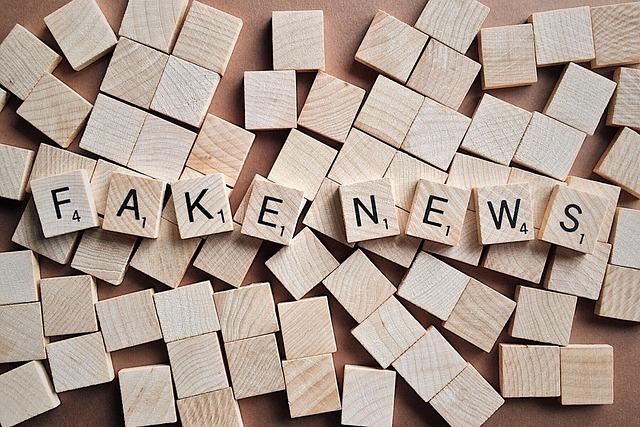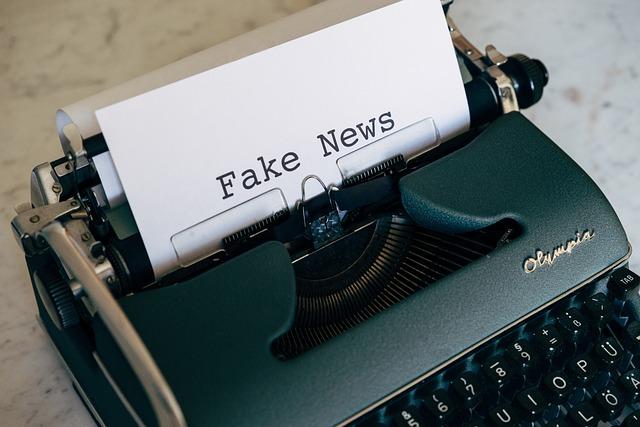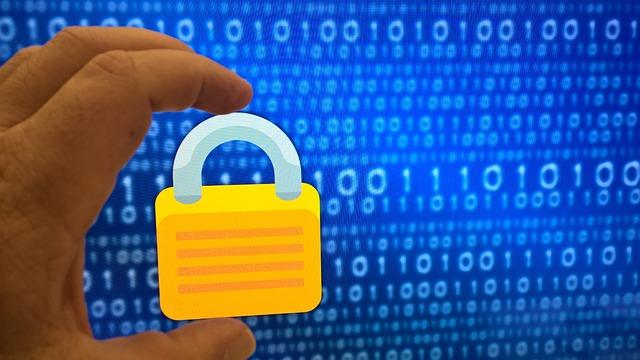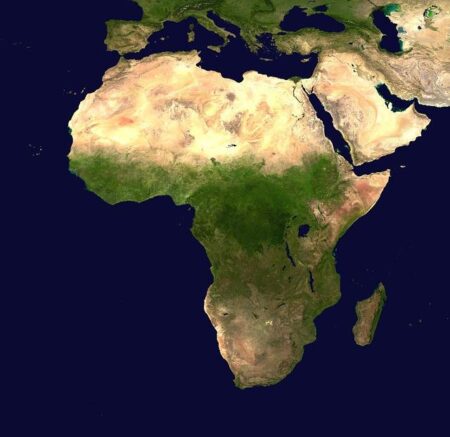In recent years, the proliferation of disinformation has emerged as a pressing concern across the globe, with Africa facing unique challenges that exacerbate the impact of false narratives. The African landscape is increasingly becoming a battleground for misinformation, as political instability, socio-economic disparities, and digital connectivity intersect. In this context, the Africa Center for Strategic Studies has undertaken a comprehensive mapping of disinformation trends across the continent, revealing the intricate networks and complex tactics that fuel the spread of misleading information. This article delves into the findings of this vital research, exploring how disinformation campaigns not only influence public opinion but also threaten democratic processes and social cohesion in various African nations. By shedding light on the origins, methods, and ramifications of these deceptive practices, we aim to foster a deeper understanding of the challenges ahead and the urgent need for strategic interventions to safeguard the integrity of information across Africa.
Understanding the Landscape of Disinformation in Africa
The rise of disinformation in Africa is a complex phenomenon,fueled by a confluence of technological advancement,sociopolitical factors,and a rapidly evolving media landscape.Social media platforms have been pivotal in this surge, acting as double-edged swords that can either empower marginalized voices or perpetuate false narratives. The accessibility of smartphones and the internet has democratized information dissemination but also enabled malicious actors to exploit these platforms for nefarious purposes. Notably during electoral periods and crises, disinformation campaigns proliferate, often inciting violence, polarizing communities, and undermining public trust in institutions.
Understanding the dynamics of disinformation requires a closer inspection of the key motivators and types of misinformation prevalent on the continent. Various stakeholders can be grouped into the following categories:
- Political Actors: Engaging in tactics to manipulate public perception for electoral gains.
- Foreign Interference: External forces leveraging disinformation to destabilize regions or shift public opinion.
- Social Groups: Utilizing misinformation to foster community narratives that might exacerbate tensions.
In the face of this challenge, collaboration between governments, civil society, and tech platforms is vital for implementing effective strategies to combat disinformation. These can include media literacy programs, regulatory frameworks, and enhanced fact-checking initiatives. A recent survey highlights the scope of the problem:
| Type of Disinformation | Impact Level |
|---|---|
| Political Misinformation | High |
| Health-related False Claims | Medium |
| Economic Rumors | Low |

Key Drivers of Disinformation and Their Impact on Society
Disinformation in Africa is driven by a complex interplay of factors, leading to a concerning surge in its prevalence and impact. Political instability is one of the main catalysts,as competing factions use misinformation to undermine each other’s credibility and mobilize support. Furthermore, social media platforms have become a breeding ground for false narratives, amplified by users who prioritize sensationalism over accuracy. The rapid dissemination of information, coupled with the lack of digital literacy among many users, exacerbates the problem, making it easier for disinformation to spread unchecked.
Societal repercussions are profound, with disinformation contributing to polarization and eroding trust in institutions.Misinformation campaigns, especially during electoral periods, can skew public perception and influence voting behaviors, leading to distorted democratic processes. Additionally, misinformation can incite racial or ethnic tensions, as narratives are crafted to exploit past grievances. The following table illustrates some of the notable impacts of disinformation on various sectors in society:
| Sector | Impact of Disinformation |
|---|---|
| Politics | Destabilizes governance and manipulates electoral outcomes |
| Health | Discredits medical information, leading to public health crises |
| Social Cohesion | Fuels division and mistrust within communities |
| Economy | Undermines markets and investor confidence through fear-based narratives |

Case Studies: Notable Incidents of Misinformation Across the Continent
The spread of misinformation in Africa has manifested through various notable incidents that highlight its profound impact on social dynamics and public perception. In Nigeria, the 2019 presidential elections were marred by a barrage of falsehoods, including manipulated photographs and misleading statistics that sought to undermine candidates’ credibility. These tactics were particularly potent in the age of social media, where nearly 60% of the electorate relied on platforms like WhatsApp and Facebook for news.Consequently, the misinformation not only shaped voting behavior but also fueled violence and unrest among various factions, showcasing how digital disinformation can catalyze real-world consequences.
Another significant example emerged from South Africa during the COVID-19 pandemic when a series of false narratives regarding vaccine safety proliferated across social media channels. Claims, such as vaccines containing microchips for tracking individuals, gained traction among specific demographics, leading to hesitancy in vaccination uptake. This misinformation was exacerbated by influential figures within communities who amplified these messages, resulting in a growing public health crisis. The government’s response, including the establishment of a task force to combat misinformation, illustrates the urgent need to address these challenges with informed communication strategies tailored to diverse audiences.

Strategies for Combating Disinformation: Best Practices and Lessons Learned
To effectively combat disinformation, it is indeed crucial to adopt a multi-faceted approach that includes education, collaboration, and technology. Strengthening media literacy among the public is foundational,allowing individuals to critically evaluate sources and discern facts from misinformation. Initiatives that focus on training educators and community leaders in fact-checking techniques can empower them to spread knowledge within their networks. Furthermore, promoting collaboration between governments, media organizations, and tech companies enhances the capacity to identify and counter disinformation campaigns swiftly. By sharing resources and intelligence, entities can create a unified front against misinformation, ensuring that credible information is readily available to the public.
Technology plays a pivotal role in the fight against false narratives. Employing AI and machine learning tools to detect and analyze the spread of disinformation can preemptively target harmful content before it gains traction. additionally, developing transparent platforms for reporting disinformation enables users to flag suspicious information, contributing to a collective approach. Institutions can also benefit from conducting regular assessments of disinformation trends to stay ahead of emerging threats. the table below highlights key strategies along with their expected outcomes:
| Strategy | Expected Outcome |
|---|---|
| Media Literacy Programs | Empowered communities capable of identifying misinformation |
| Collaborative Networks | Swift identification and response to disinformation campaigns |
| AI Detection Tools | Early intervention and reduced spread of false content |
| User Reporting Mechanisms | Community engagement in maintaining information integrity |
| Regular Assessments | Proactive strategy adjustments to evolving disinformation tactics |

the Role of Technology and Media Literacy in Mitigating Misinformation
The proliferation of digital technologies has transformed the information landscape, making it imperative for individuals to develop critical media literacy skills. In regions vulnerable to misinformation,such as Africa,the ability to discern credible sources from unverified or misleading content has never been more crucial. technology plays a pivotal role in this process by enabling access to diverse information sources while simultaneously facilitating the spread of disinformation. Consequently, educational initiatives focused on enhancing media literacy are essential to equip citizens with the tools needed to navigate the digital realm. Key components of these initiatives include:
- critical Thinking Skills: Encouraging individuals to assess the reliability of information sources and the intentions behind them.
- Fact-Checking Resources: Promoting the use of established fact-checking organizations to validate information before sharing.
- Digital Literacy Training: Implementing programs that teach the safe and effective use of technology and social media platforms.
Furthermore, collaboration between governments, educational institutions, and civil society organizations can amplify the impact of media literacy initiatives across the continent. By fostering a culture of responsible information sharing, these entities can help communities identify and combat misinformation. Leveraging technology to facilitate real-time reporting and community participation is essential in this fight. The following table outlines some innovative strategies to enhance media literacy:
| Strategy | Description |
|---|---|
| Community workshops | Conducting local events to educate residents on media literacy and misinformation. |
| Online Campaigns | Utilizing social media platforms to spread awareness about disinformation challenges. |
| Partnerships | Collaborating with tech companies to develop tools that flag misleading content. |

Policy Recommendations for Governments and Civil Society in Africa
To combat the increasing wave of disinformation across the continent, governments should prioritize the establishment of comprehensive legal frameworks that define and penalize the spread of false information. These frameworks should be constructed with a focus on upholding freedom of speech, ensuring that laws do not stifle legitimate discourse while effectively addressing disinformation.Key recommendations include:
- Establishing clear definitions of disinformation that distinguish it from misinformation and opinion.
- Creating rapid response units within national communications ministries to counter disinformation swiftly.
- Promoting digital literacy programs that empower citizens with critical thinking skills to assess the credibility of online information.
In tandem with governmental initiatives, civil society organizations should play a pivotal role in educating the public and fostering a culture of integrity in information sharing. By collaborating with tech platforms, these organizations can introduce measures that enhance openness in news sources and amplify reliable journalism. Important actions may include:
- Developing partnerships with social media companies to tackle disinformation collaboratively.
- Conducting community workshops to educate citizens about the impact of disinformation and strategies to identify it.
- Advocating for autonomous fact-checking services accessible to all segments of society.
The Way Forward
As the digital landscape continues to evolve, the surge of disinformation in Africa presents a complex challenge that demands urgent attention. The Africa Center for Strategic Studies has highlighted the multifaceted nature of this issue, illustrating how misinformation can undermine social cohesion, disrupt democratic processes, and jeopardize public health initiatives across the continent. Understanding the mechanisms through which disinformation spreads is crucial for developing robust strategies to combat its influence.
Equipped with insights from rigorous research and on-the-ground observations, stakeholders‚ÄĒfrom governments and NGOs to tech companies and civil society‚ÄĒmust collaborate to cultivate media literacy, enhance information verification processes, and foster a resilient information ecosystem. With the potential for both economic growth and social empowerment at stake, addressing the challenges posed by disinformation is paramount for safeguarding Africa‚Äôs future. As the battle against disinformation intensifies, proactive measures will be key to ensuring that the truth prevails, enabling the continent to navigate its path forward with integrity and resilience.







